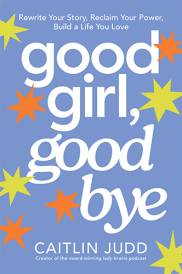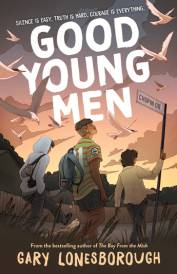Clean Up Australia Day

Clean Up Australia Day
Australia is known around the world for its stunning beaches and pristine marine environments. However, the huge amount of waste finding its way into our oceans each year is tarnishing our famous seascapes and having horrific impacts on marine life.
With at least 80% of waste in marine environments the result of land-based littering, this is a concern for all Australians – whether we live on the coast or inland.
Ian Kiernan AO, Chairman and Founder of Clean Up Australia Day, comments; 'Our 2010 Rubbish Report highlights the amazing achievement of all our Clean Up Australia Day volunteers. They do a fantastic job of cleaning up their own local areas – and in doing so; they're also helping to keep our oceans clean, by preventing rubbish from entering storm water and from there finding its way into our waterways.
'With rubbish increasing its visibility by 6% in 2010, we can't just sit around – we need to take action for our environment. We are a resilient nation and through community effort we can preserve our landscapes and oceans. It is vital that volunteers continue their great effort and register to continue to clean up."
The call to action comes as Clean Up Australia announced the 2010 Rubbish Report and revealed the statistics of the Australian effort last year. The report reveals that in NSW, an estimated 236,100 volunteers removed approximately 6,097 tonnes of rubbish from 2,271 sites. Across Australia, 588,000 volunteers removed 15,560 tonnes from 7,073 sites, making Clean Up Australia Day the largest community participation event in Australia.
Clean Up Australia's 2010 Rubbish Report highlights plastic as the predominant form of waste for the 16th year running, with 37% of all rubbish items removed in NSW being some form of plastic. Its long lasting presence (plastic bags can last up to 450 years in salt water) makes plastic one of the most destructive forms of waste in Australia.
Clean Up Australia Day began when founder Ian Kiernan was shocked by the amount of waste he encountered while sailing the world's oceans. Preventing waste from entering waterways is still a key goal of Clean Up Australia Day, and Clean Up urges New South Wales residents to do their bit by registering for Clean Up Australia Day 2011.
Top 5 Rubbish Items in NSW:
1.Cigarette butts
2.PET drink containers
3.Plastic chips and confectionary bags
4.Bottle caps
5.Foil/confectionary wrappers
Most Polluted Sites in NSW:
1.Beach/coastal
2.River/creek
3.School grounds
4.Parks
5.Roadway
Other NSW results:
Fact 1 – NSW generates roughly 15 million tonnes of waste per annum, 48% of which goes to landfill.
Fact 2 – The NSW Government has committed to a target of 66% municipal waste recycling by 2014 – the recycling rate in waste in 2007-2008 was 43%.
Fact 3 – Plastic waste was slightly more common in NSW, with 37% of the total rubbish found being plastic compared to a national average of 32%.
Fact 4 – Beach and coastal areas were the most polluted sites surveyed in NSW.
Fact 5 – Cigarette butts recorded their third consecutive year of increase in rubbish collected in NSW at 17%, up from 9% in 2008 and 15% in 2009.
Fact 6 – If Container Deposit Legislation was introduced then an estimated $12,000 could have been made from rubbish collected.
Fact 7 – NSW has the most polluted rivers and creeks out of all of the states and territories, recording 480 items of rubbish collected per site.
National findings from Clean Up Australia 2010 Rubbish Report:
Plastics represent 40% of all rubbish found including pet drink bottles, bottle caps and lids plus chips/confectionery bags
There was a 6% increase in number of rubbish items found per surveyed site, equating to 124 items per square kilometres.
Outdoor transport sites had the highest density of rubbish of all sites surveyed, with 326 items per square kilometre. They had close to twice the waste density of shops/malls and 46 times more waste than public bushland
Cigarette butts were the most commonly found item for the 15th year in a row – 1 in 5 waste items removed in 2010 was a cigarette butt
Beach and coastal areas and rivers/creeks showed the significant waste density at 164 and 108 items per square kilometre respectively
Clean Up Australia Day 2011
What: Australia's largest community participation event. Get a group together and register your chosen Clean Up Site online.
When:
Clean Up Australia Day – Sunday 6 March
Business Clean Up Day – Tuesday 1 March
Schools Clean Up Day – Friday 4 March
Where: Your local park, waterway, bus area, beach or street.
Who: Everyone is welcome – friends, family, kids, community groups, work colleagues or anyone else.
How: Register for Clean Up Australia Day now at www.cleanupaustraliaday.org.au or call 1800 CUA DAY for more information.
With at least 80% of waste in marine environments the result of land-based littering, this is a concern for all Australians – whether we live on the coast or inland.
Ian Kiernan AO, Chairman and Founder of Clean Up Australia Day, comments; 'Our 2010 Rubbish Report highlights the amazing achievement of all our Clean Up Australia Day volunteers. They do a fantastic job of cleaning up their own local areas – and in doing so; they're also helping to keep our oceans clean, by preventing rubbish from entering storm water and from there finding its way into our waterways.
'With rubbish increasing its visibility by 6% in 2010, we can't just sit around – we need to take action for our environment. We are a resilient nation and through community effort we can preserve our landscapes and oceans. It is vital that volunteers continue their great effort and register to continue to clean up."
The call to action comes as Clean Up Australia announced the 2010 Rubbish Report and revealed the statistics of the Australian effort last year. The report reveals that in NSW, an estimated 236,100 volunteers removed approximately 6,097 tonnes of rubbish from 2,271 sites. Across Australia, 588,000 volunteers removed 15,560 tonnes from 7,073 sites, making Clean Up Australia Day the largest community participation event in Australia.
Clean Up Australia's 2010 Rubbish Report highlights plastic as the predominant form of waste for the 16th year running, with 37% of all rubbish items removed in NSW being some form of plastic. Its long lasting presence (plastic bags can last up to 450 years in salt water) makes plastic one of the most destructive forms of waste in Australia.
Clean Up Australia Day began when founder Ian Kiernan was shocked by the amount of waste he encountered while sailing the world's oceans. Preventing waste from entering waterways is still a key goal of Clean Up Australia Day, and Clean Up urges New South Wales residents to do their bit by registering for Clean Up Australia Day 2011.
Top 5 Rubbish Items in NSW:
1.Cigarette butts
2.PET drink containers
3.Plastic chips and confectionary bags
4.Bottle caps
5.Foil/confectionary wrappers
Most Polluted Sites in NSW:
1.Beach/coastal
2.River/creek
3.School grounds
4.Parks
5.Roadway
Other NSW results:
Fact 1 – NSW generates roughly 15 million tonnes of waste per annum, 48% of which goes to landfill.
Fact 2 – The NSW Government has committed to a target of 66% municipal waste recycling by 2014 – the recycling rate in waste in 2007-2008 was 43%.
Fact 3 – Plastic waste was slightly more common in NSW, with 37% of the total rubbish found being plastic compared to a national average of 32%.
Fact 4 – Beach and coastal areas were the most polluted sites surveyed in NSW.
Fact 5 – Cigarette butts recorded their third consecutive year of increase in rubbish collected in NSW at 17%, up from 9% in 2008 and 15% in 2009.
Fact 6 – If Container Deposit Legislation was introduced then an estimated $12,000 could have been made from rubbish collected.
Fact 7 – NSW has the most polluted rivers and creeks out of all of the states and territories, recording 480 items of rubbish collected per site.
National findings from Clean Up Australia 2010 Rubbish Report:
Plastics represent 40% of all rubbish found including pet drink bottles, bottle caps and lids plus chips/confectionery bags
There was a 6% increase in number of rubbish items found per surveyed site, equating to 124 items per square kilometres.
Outdoor transport sites had the highest density of rubbish of all sites surveyed, with 326 items per square kilometre. They had close to twice the waste density of shops/malls and 46 times more waste than public bushland
Cigarette butts were the most commonly found item for the 15th year in a row – 1 in 5 waste items removed in 2010 was a cigarette butt
Beach and coastal areas and rivers/creeks showed the significant waste density at 164 and 108 items per square kilometre respectively
Clean Up Australia Day 2011
What: Australia's largest community participation event. Get a group together and register your chosen Clean Up Site online.
When:
Clean Up Australia Day – Sunday 6 March
Business Clean Up Day – Tuesday 1 March
Schools Clean Up Day – Friday 4 March
Where: Your local park, waterway, bus area, beach or street.
Who: Everyone is welcome – friends, family, kids, community groups, work colleagues or anyone else.
How: Register for Clean Up Australia Day now at www.cleanupaustraliaday.org.au or call 1800 CUA DAY for more information.
MORE
- Clean Up Australia Day
- Brioche Installs Solar Air-Con
- Acting for a Sustainable Future
- Melbourne's Own Solar Powered Charging Station...
- Battery Hazard
- Q.CELLS Completes Europe's Largest Solar Project
- First Cyclone-Proof Solar Modules in Australia
- TEC's Waste Not
- Solar Charging Station for Electric Vehicles
- Globe recycling program





